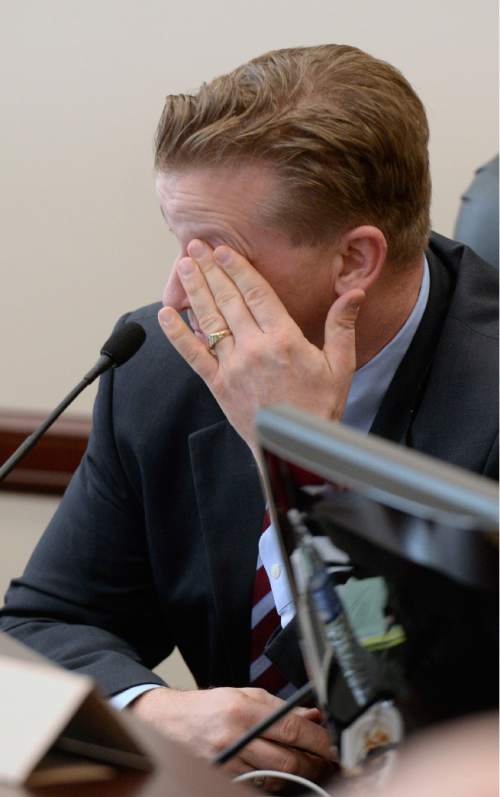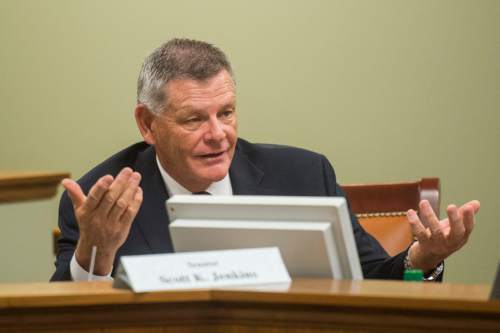This is an archived article that was published on sltrib.com in 2016, and information in the article may be outdated. It is provided only for personal research purposes and may not be reprinted.
The Utah Senate approved legislation Tuesday requiring businesses to accommodate breast-feeding mothers, despite concerns raised about whether it could lead to mothers bringing babies to the workplace and infants into coal mines.
"If you're a mine operator and have women working underground, how is that going to work?" asked Sen. David Hinkins, a Republican from Emery County, where there are numerous mines. "It's illegal to take a baby underground, of course."
Sen. Todd Weiler, R-Woods Cross, the sponsor of SB59, assured Hinkins the bill "would not require babies in mines" because that sort of arrangement would be unreasonable.
He said it would just require companies with 15 or more employees to do things such as give a nursing or pregnant mother an extra break during the day or not require a pregnant woman to lift more than 20 pounds.
Sen. Deidre Henderson, R-Spanish Fork, said that, because the bill requires a note from a doctor, it ensures employers won't have to respond to frivolous or unreasonable requests for special treatment. Henderson said she worked two places when she was pregnant with her oldest child.
"One [was a] really great experience and one really bad experience, but I think most employers already do these things," she said. "And I think this provides a layer of protection for the employer as well."
But Sen. Scott Jenkins, R-Plain City, expressed concerns that, as an employer, having babies in the workplace would be "invasive." He explained that he has a "little secretary who works for me" who sometimes brings her baby to the office and puts the child on a blanket.
"We all walk around him and stumble over his toys," he said, "and it's very intrusive to the office."
Weiler explained that the baby would not need to be in the office — that mothers would simply pump their breast milk and store it in the refrigerator.
"OK, they're gonna do, what I called, and what my wife called 'milking'?" Jenkins asked.
Jenkins still opposed the bill, saying he believes most employers are already accommodating their employees and the state doesn't need another law.
But he was in the minority. The Senate voted 18-9, sending the measure to the House for consideration.
Weiler said he was surprised by the number of votes against the measure, but he expects it to pass the House.
"We've got 61 percent of the women in the state working and having children, and 16 other states and the District of Columbia have passed basically the same legislation," he said. "I'm frankly a little embarrassed that we're such a family-friendly state but we haven't extended these protections to the workplace."
Twitter: @RobertGehrke





